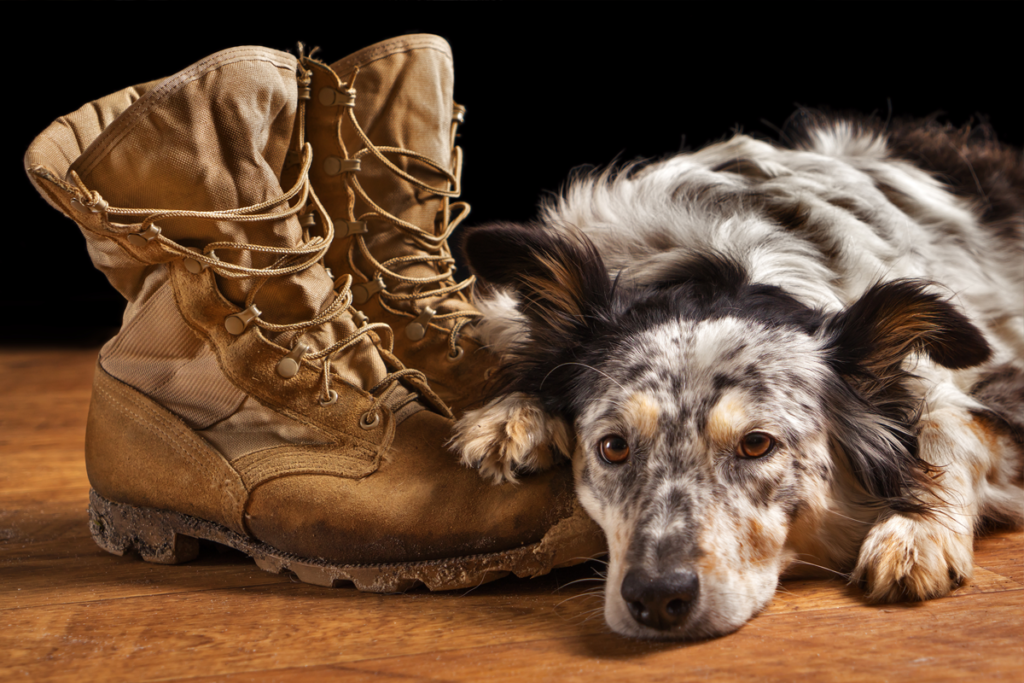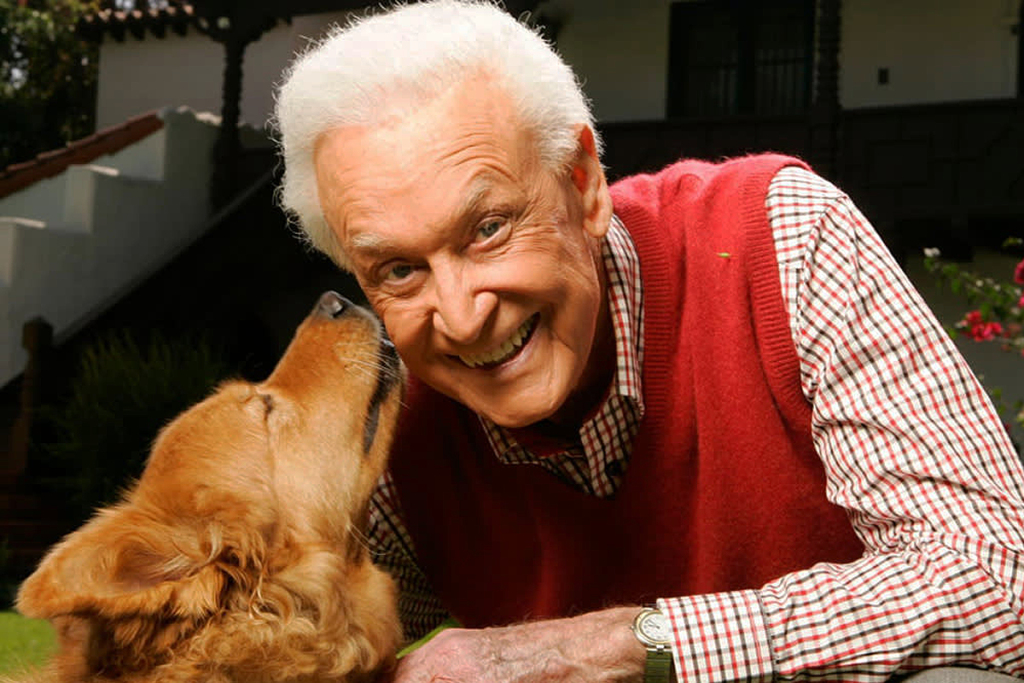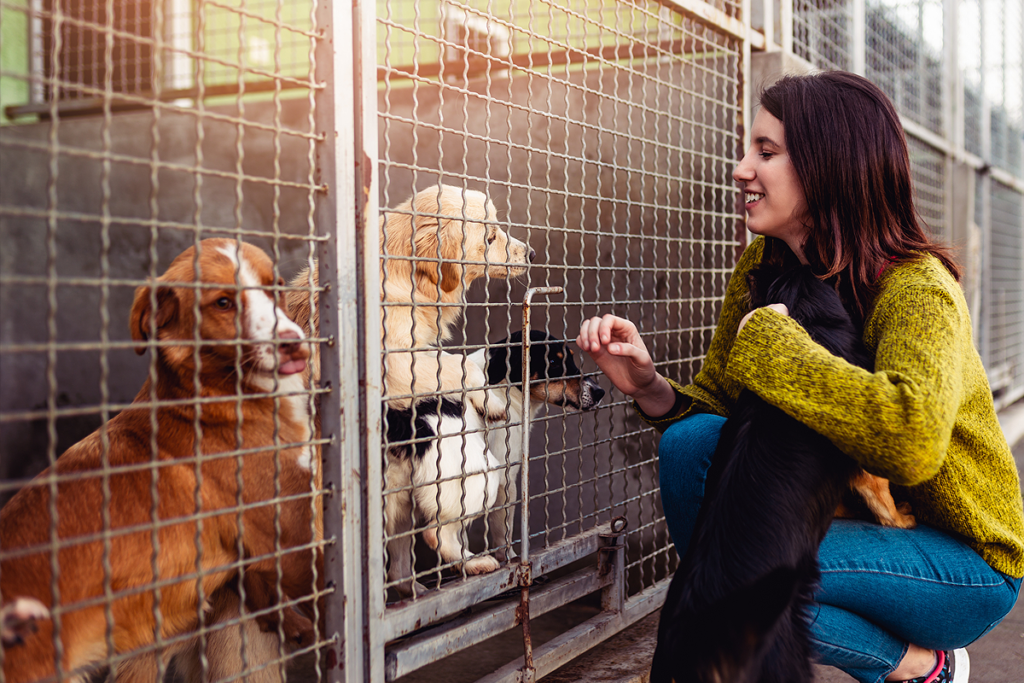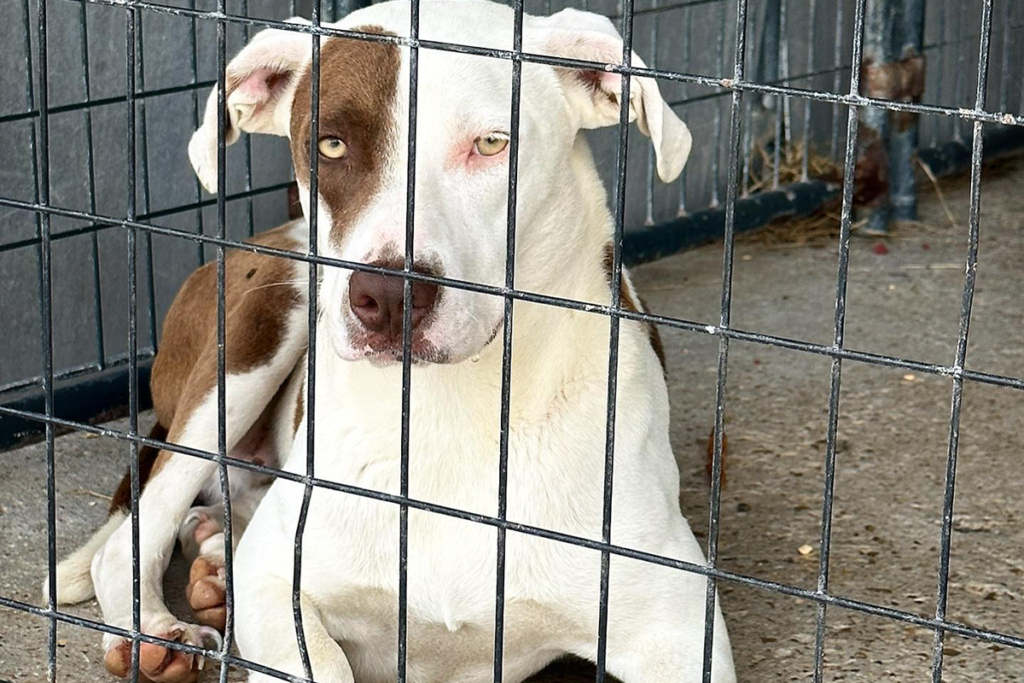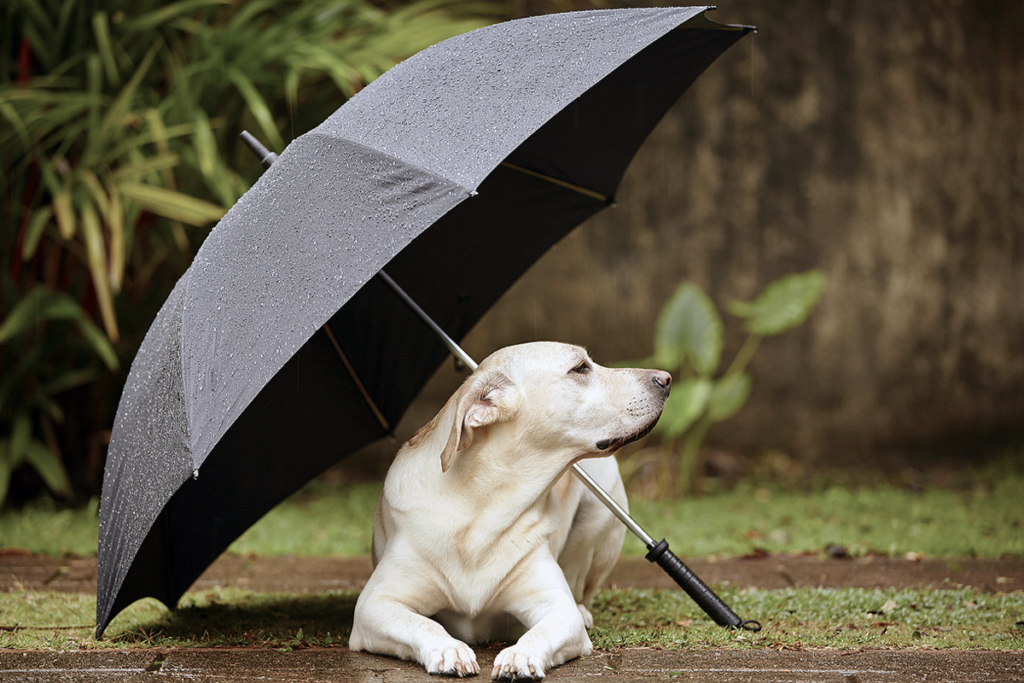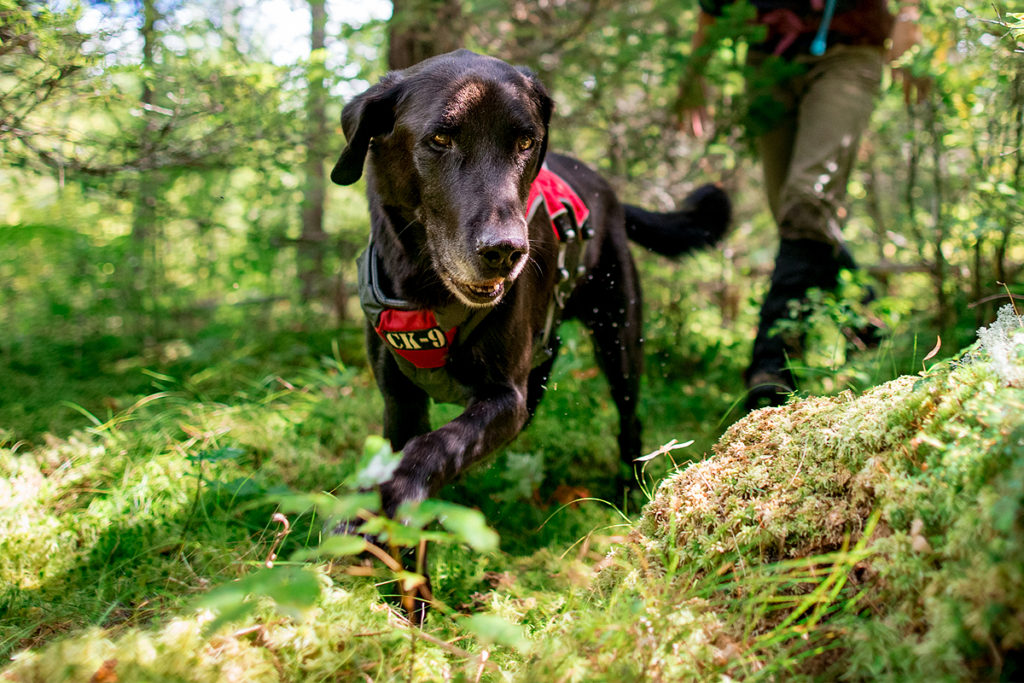Much like our favorite colors, how we prefer our eggs cooked, and the handful of songs we play on repeat; if you love dogs, you’re inevitably drawn to particular breeds. Even if it’s the classic mutt you fancy, you’re likely partial to the amalgam of characteristics and unique personalities they’re known for. But it’s important to be both mindful and responsible, when deciding where your new furry family member comes from, because not every breeder has their, or your, best interests in mind.
Earlier this year, the Humane Society of the United States reported that there are at least 10,000 commercial breeding facilities in the country and fewer than 3,000 are regulated by the U.S. Department of Agriculture. These puppies are often sold online, in pet stores, or directly to the public through ads, with a staggering 2.4 million puppies produced and sold each year through mass-breeding operations.
Sadly, 25% of the dogs currently living in animal shelters are purebred. And 1.5 million dogs and cats are euthanized by shelters each year. These numbers are staggering and unacceptable. Unfortunately, they’re a result of ‘demand generation’, except these aren’t products, they’re puppies. Living, breathing, feeling animals who are created for their genetic appeal and dollar value. By not adequately researching reputable breeders or purchasing a puppy that’s less expensive from a ‘backyard breeder’, or pet store, you’re directly contributing to this ever-growing problem.
Not only are there legal and ethical issues, but you must also consider the health and well-being of the dog, including those used for breeding. Many of the puppies born into these environments suffer from sickness, malnutrition, and behavioral issues that become chronic challenges as the puppy grows. This could mean continuous medical care, which may be more than some pet owners are able to afford and often these dogs are surrendered to shelters, becoming part of that 25% mentioned earlier, and in worse cases, one of the 1.5 million.
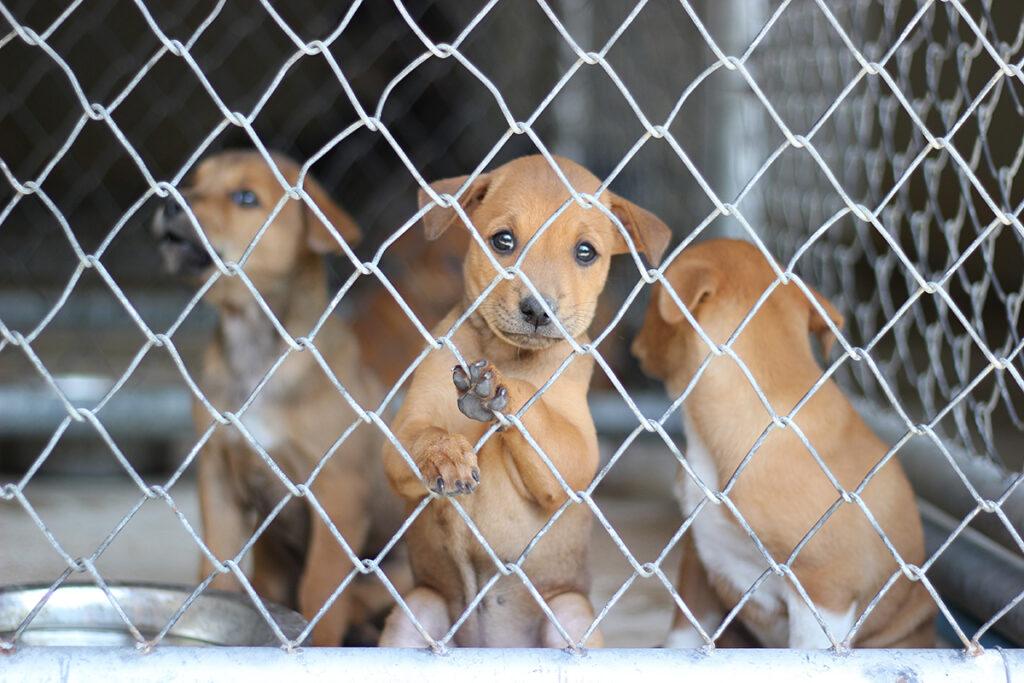
“Once upon a time, people believed that purebred dogs were naturally healthier than mixed breeds. How have we arrived at a point where it may be safer to presume the opposite?”
Carrie Allan
SVP of Communications
Humane Society of the United States
This is uncomfortable to read, and heartbreaking to realize. Trust me, it didn’t feel good to write either. And I wouldn’t be doing my job if I didn’t take this opportunity to encourage you to consider adopting before you purchase a puppy. There are organizations and foundations for every single breed – I assure you. (I did the research in case anyone requested a fact check…the Finnish Spitz? Yep. The Berger Picard? You bet.) And they have adoptable dogs of every age. But, if for some reason you can’t find the type of dog you have your heart set on – and you tried your very best – please take the following things into consideration when you’re selecting your new best friend and their breeder.
Here’s what you should know/ask to increase your chances of bringing home a healthy, happy pup:
UNDERSTAND THE BREED
You may adore the deeply wrinkled face and famous physique of the English bulldog, but it’s important to understand that many suffer from chronic breathing issues, are sensitive to heat due to the structure of their nasal passages and trachea – so they aren’t able to pant sufficiently enough to cool themselves down, and their heavy, thickset body is prone to elbow and hip dysplasia. With the proper care and attention, they can lead happy lives, but it’s best to understand their possible health problems and what you would undertake as a pet owner. Canine Health Information Center is a great resource, as well as the Canine Genetic Disease Network.
ASK THE EXPERTS
Not only are rescue organizations incredibly knowledgeable about dog breeds, but they can often recommend a reputable and responsible breeder, or at least let you know which individuals to avoid. If they don’t know of a well-respected breeder, they’ll likely reach out to others within their network and provide you with additional information or at least a solid starting point. Everyone’s goal is to ensure animals find their way to good homes, even if isn’t always through adoption.
YOU SHOULD INTERVIEW, AND BE INTERVIEWED
A good breeder will allow you check out the place where the puppies are being raised and the breeding parents live, which is hopefully in their home where they’re treated like part of the family. Ensure the pups are socialized and they’re not taken away from mom and placed in new homes too early. The breeder should also ask you a lot of questions as well, and express concern about where the puppy is going to live. They should provide papers showing the dogs heritage, as well as genetic screening on the pup’s parents. And should you become unable to care for the pup, they should ask that you promise to return the dog to them.
BE REALISTIC
You might employ all the due diligence possible, but unfortunate things happen. It’s good to consider not only the cost of purchasing a puppy, but also the potential veterinary charges you may incur should your new puppy become ill. Pet insurance is a great option, especially if you know your dog may experience certain health issues given their breed and genetic composition.
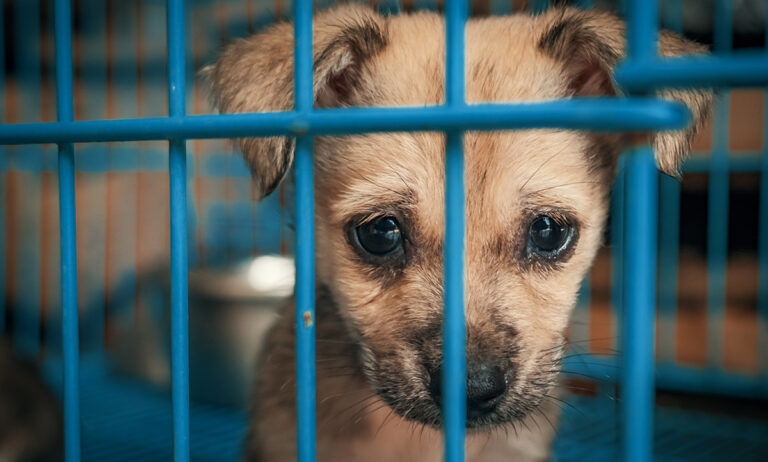
CONSIDER A YOUNG DOG
If this will be your first experience owning a dog, you may find a puppy a bit overwhelming. Perhaps you should consider a pup that is 1-2 years old. Trust me, they are still full of puppy playfulness, but most have already mastered house training, and are past the destructive teething and hyperactive stages…bonus! You’ll also be able to better assess their health and temperament. Millions of wonderful young dogs are available, and they started out as amazing puppies who simply didn’t meet their forever friend before they started to grow. But they’ve just begun!
There you have it…that sums up our best advice for preparing to select a puppy that’s right for you, and hopefully best for them. Dogs bring so much to our lives, but remember that for them, we are their whole life. So, they deserve every chance to have a wonderful one.


